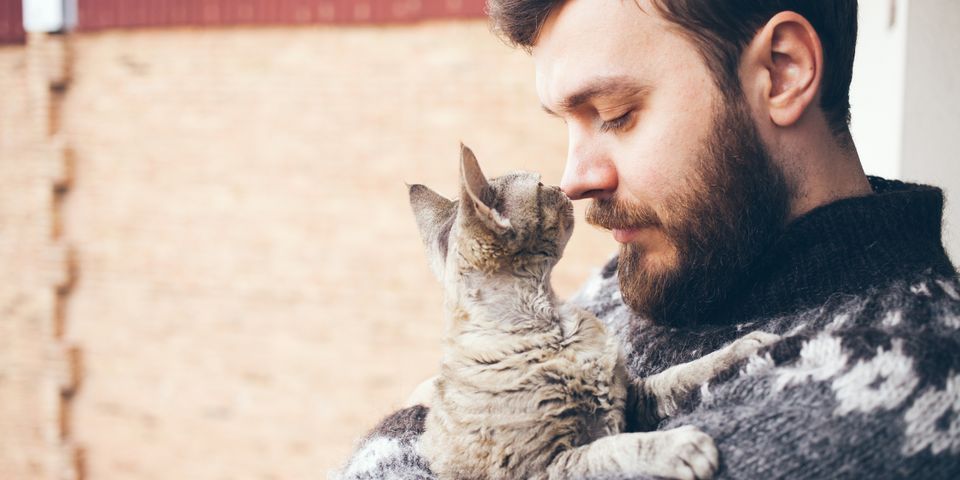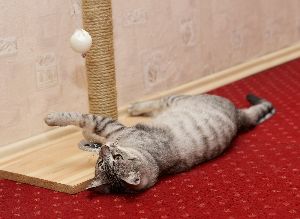
As independent as they are, even cats can experience discomfort when you leave. This is common if you adopted an orphaned kitten, developed a close bond, or if the feline doesn't receive enough stimulation when you’re away from home. If you notice a cat exhibiting unwanted behaviors, bringing this up with a veterinarian can help confirm that the cause is anxiety, rather than a health issue. Below is more information about how to recognize separation anxiety and make your time apart easier.
What Are Signs of Separation Anxiety?
Cats can exhibit symptoms before you leave the house, while you’re gone, or when you return. Here are the most common signs that your cat doesn’t want you to leave:
- Meowing or crying excessively
- Urinating or defecating outside the litter box
- Vomiting
- Destroying belongings
- Attempting to escape
While these are common behaviors, it is not an exhaustive list, and your cat may react differently. Always remember that your cat is not doing these actions out of spite, they are responding to distress. Also, be patient with your furry friend and discuss possible solutions with a veterinarian. Many of these symptoms can also indicate underlying health problems, such as stomach and bowel irritation, so you should rule these out before attempting treatment.

How Can You Help a Cat Overcome It?
If your veterinarian finds no physical reasons for the cat’s behavior and suspects separation anxiety is the cause, you can help ease their loneliness. First, make sure your companion has plenty to do when you’re not around. For example, scatter treat balls throughout the house to encourage them to hunt for tantalizing rewards. Alternatively, hanging a bird feeder near a window or investing in a cat tree will provide entertainment all day. Also, consider having a close friend stop by to check on them when you’re gone.
When you do leave, don't make a big deal out of the departure. Many pets get nervous when they know you’re leaving, so avoid big hugs and kisses. Standard behavior cues, such as putting on shoes or grabbing keys, can also tip them off. To erase the association and desensitize the cat to these actions, perform them even when you’re not leaving the house.
In severe cases of separation anxiety, your cat may not respond to these steps. Talk to a veterinarian to find out if anti-anxiety medication might help calm your pet while you’re out.
If your cat experiences separation anxiety, contact Pearson Animal Clinic for help finding reliable solutions. Based in Russellville, AR, this veterinary clinic provides comprehensive medical services for cats and dogs. They use cutting-edge technology and decades of experience to ensure the health and wellbeing of your pet, whether they’re performing routine checkups or surgeries. Learn more about their services online, or call (479) 968-3535 to schedule an appointment with a veterinarian.
About the Business
Have a question? Ask the experts!
Send your question

